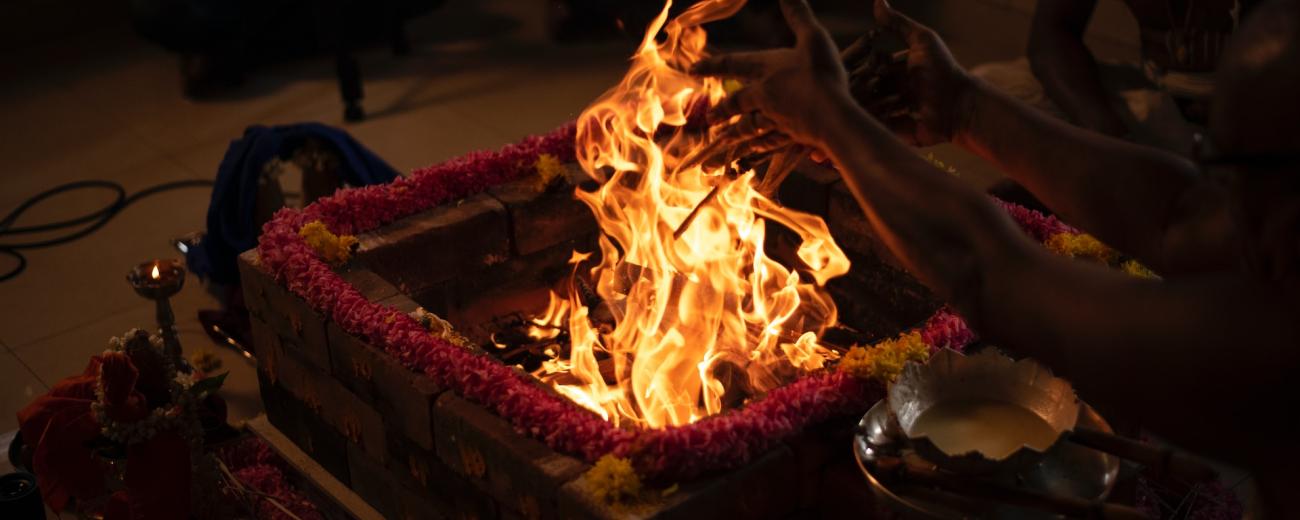
Dominik A. Haas – The Gāyatrī between the Vedic Age and Modern Yoga

Key information
- Date
- Time
-
7:00 pm to 8:30 pm
- Venue
- SOAS Centre of Yoga Studies
- Event type
- Virtual/online
About this event
SOAS Centre of Yoga Studies is pleased to host Dominik A. Haas of the Austrian Academy of Sciences and the University of Vienna, who is author of Gāyatrī: Mantra and Mother of the Vedas (2023).
The mantra known as Gāyatrī or Sāvitrī (Ṛgveda III 62.10) is one of the most frequently recited texts of mankind. Over the course of time it has not only been personified as the mother of the Vedas – the oldest religious literature of South Asia –, but has even come to be venerated as a goddess. It plays an important role in contemporary Hinduism as well as in modern yoga and alternative spiritual currents around the globe. Many consider it the most important, most efficacious, or holiest mantra of all.
In this lecture, Dr Haas will present the results of his recently completed book project on the Gāyatrī-Mantra. He will talk about its history between the Vedic Age and modern yoga, focussing on the period between 1000 BCE and 1000 CE, the period in which the mantra rose to become a shibboleth of Brahmanical Hinduism and its deified form was fleshed out.
Speaker
Dominik A. Haas completed his doctorate in South Asian Studies at the University of Vienna in 2022 with a dissertation on the Gāyatrī mantra. His publications and lectures deal with Hinduism, the Vedic religion, mantras, deification and yoga. Following an interdisciplinary approach, he combines philological and historical research with methods and perspectives from a wide range of disciplines, including text linguistics and religious studies. As a co-founder of the Initiative for Fair Open Access Publishing in South Asian Studies (FOASAS), Haas also advocates for modern forms of scholarly communication and fair working conditions in the academic and publishing sectors.
He is currently a Post-Doc fellow and has published a monograph based on his dissertation with the Austrian Academy of Sciences in Contributions to the Cultural and Intellectual History of Asia. In Gāyatrī: Mantra and Mother of the Vedas, Haas reconstructs for the first time the history of the Gāyatrī mantra, which, as the most important initiatory mantra of Brahmanical Hinduism, has played a central role in the formation of social and religious identity for over 2,000 years. Over time, the mantra was not only personified as the mother of the Vedas, the oldest religious literature in South Asia, but was even worshiped as a goddess.
In addition to working on his book, Haas is also preparing a new research project that will examine the cultural history of mantras and their recitation. He also leads courses on the topics of mantras and religious history at the University of Vienna.
Gāyatrī: Mantra and Mother of the Vedas
The Gāyatrī: Mantra and Mother of the Vedas is available open access by: Open Access Fonds der Österreichischen Akademie der Wissenschaften. (Pages: 359 pages, Format: 29,7x21cm, Language: English.)


